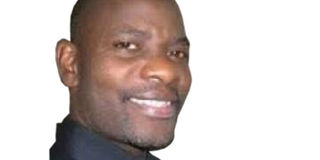Prime
There’s nothing Museveni can do to regain popularity he had in the past

I first saw President Museveni physically in 1988 when I was in secondary school. He was on a whistle-stop tour of Mpigi District and travelled by helicopter from Gombe (his first stop) to Kanoni, the headquarters of Gomba District, then a county, and the birthplace of presidential candidate Robert Kyagulanyi.
Mr Museveni had been in power for barely two years and was hugely popular, drawing cheering, delirious crowds in many places he visited.
To see the visiting President, my friend and I left school early without permission and trekked a 10-kilometre journey to Kanoni. We stood by the roadside near a football pitch where the President’s helicopter was to land and started waiting.
There were many heavily armed soldiers in the surrounding bushes, but they did not even ask us to leave, which is unthinkable today, given the number of enemies — real and perceived — that Mr Museveni has created and is creating.
As we waited patiently, we started hearing the rumble of the helicopter approaching Kanoni. In less than no time, the helicopter landed, the President disembarked from the helicopter and climbed into a white Mercedes G Wagon.
From a distance, we looked intently at the car as it started leaving the football pitch, and when it reached us, the President waved at us, smiling, and we waved back — in ecstasy. We were the first civilians in Kanoni to see the President.
He was a hero. And he had nearly everything under control. More importantly, the people viewed him as a political messiah.
But the passage of time does change things, and for Mr Museveni, it has changed them for the worse, although he has himself to blame for everything that is going horribly wrong.
His reckless and dangerous quest for power has made him arguably the most unpopular politician in Uganda today, and as this newspaper reported recently, people attending his rallies have to be bribed.
This is an acutely embarrassing comedown for a man who enjoyed hero status. In 1996, for example, when he won his first election, Mr Museveni drove (in a convoy) from his country home in Rwakitura to Kampala, with throngs of supporters cheering and waving enthusiastically.
If the election was rigged, the rigging did nothing to alter the outcome. The President had support. And no one was murdered by security forces for supporting Paul Ssemogerere, who was the President’s main challenger.
Mr Museveni is now seeking re-election with virtually no support even as he moves from one district to another, posting images on social media of infrastructure he says he has built over the years. People, as we say in Luganda, do not want to know.
There is nothing the President will do to regain popularity. People are clearly fed up, and are angry at the broad daylight killings by security forces of mostly innocent, apolitical Ugandans.
The campaign is all about murders and murders of innocent voters. This week, Mr Kyagulanyi, who is the President’s main challenger, produced overwhelming and irrefutable evidence of the brutal campaign against him by security forces. He has narrowly escaped death after his car got hit by live bullets fired by men who are supposed to protect him. More than 50 Ugandans have been killed and more may be killed.
Regime apologists blame Mr Kyagulanyi, saying he has failed to control his rowdy supporters. Nonsense! Mr Kyagulanyi does not tell supporters to leave their homes and barricade roads when he is arrested. And how can he control them when he is under brutal arrest?
Mr Namiti is a journalist and former
Al Jazeera digital editor in charge of the Africa desk
[email protected] @kazbuk




